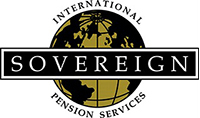There really is no such thing as an “offshore IRA”. The term really is used to describe investing one's IRA assets offshore. The IRA Custodian is still onshore as required. Over the years I've learned people confuse the term custodian from custody. Custodian is a legal term and is defined as follows:
“A directed IRA custodian serves as a passive, non-discretionary custodian of customer-directed, also known as self-directed, individual retirement accounts (“IRAs”), as IRA is defined in Section 408 of the Internal Revenue Code as amended.” RITA Retirement Industry Trust Association
Hmmm, that's clear as mud as they say. Let's see what the IRS says about this:
Publication 5909-A This publication discusses contributions to individual retirement arrangements (IRAs). An IRA is a personal savings plan that gives you tax advantages for setting aside money for retirement. For information about distributions from an IRA, see Publication 590-B, Distributions from Individual Retirement Arrangements (IRAs).
The IRS goes on further to say the Trustee or Custodian of an IRA "must be a bank, a federally insured credit union, a savings and loan association, or an entity approved by the IRS to act as trustee or custodian.”
In more simple terms the custodian is responsible for the legal side of the IRA and all required reporting. They hold the legal title to the assets on your behalf. Where you decide to invest the assets of your IRA determines the actual custody. For example, you have an IRA and you open up a foreign bank account. Your assets are being held offshore, or putting it another way, the custody of your assets is offshore even though the Custodian is based in the states.
This gives you more investment flexibility and more protection than you may otherwise have. If you are interested in diversifying your IRA into things like foreign currencies, non-US real estate, then this is the way to move forward. Did you know an IRA or retirement plan may now be the best way to establish a foreign bank account! The new reporting requirements make this crystal clear.
It's MUCH, MUCH better to move your retirement assets offshore. Why? Because unlike personal assets that have draconian reporting rules with outrageous fines for failing to file these forms correctly, IRA's and Retirement Plans are exempt from filing. Wait, what did you say? They are EXEMPT.
Statement of Specified Foreign Financial Assets
- Certain financial accounts. The following financial accounts and the assets held in such accounts are not specified foreign financial assets and do not have to be reported on Form 8938.
- U.S. mutual funds accounts;
- IRAs (traditional or Roth);
- Section 401(k) retirement accounts;
- Qualified U.S. retirement plans;
Exceptions
IRA Owners and Beneficiaries. An owner or beneficiary of an IRA is not required to report a foreign financial account held in the IRA.
Participants in and Beneficiaries of Tax-Qualified Retirement Plans. A participant in or beneficiary of a retirement plan described in Internal Revenue Code section 401(a), 403(a), or
403(b) is not required to report a foreign financial account held by or on behalf of the retirement plan.
If you click here you can see a map of the world and a list indicating where our clients have invested.
It's important to remember neither SIPS nor it's employees give tax or legal advice. You should always seek the opinion of your own tax or legal counsel.


